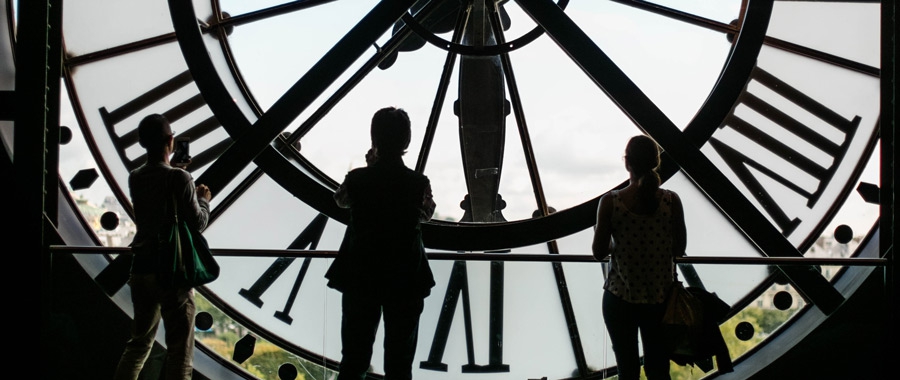The views expressed in our content reflect individual perspectives and do not represent the authoritative views of the Baha'i Faith.
Living in a city like New York, known for its busy and bustling nature, I often catch myself feeling cramped for time, and I wonder: can time-management become a healthy spiritual practice?
Even on the days when I only have a few things on my to do list, I can easily go the entire day without crossing those few things off. Whether public transportation proves itself unreliable, or I get distracted online somewhere, I often feel that the hours slip away from me.
Even if you don’t live in a busy city like New York, you can benefit from time management. The way we spend our time dictates who we become. In bell hooks’s All About Love, she writes that one component of self-love means ensuring that we use our time to move closer to fulfilling our purpose – and contributing to something larger than ourselves functions as a part of that purpose.
To do this properly and also tend to basic practical needs requires using time to the best of our ability. Our capitalistic society bases efficiency and productivity on how much someone can deliver, but striving for this form of efficiency can leave us sick, emotionally ungrounded and burnt out. If we value our physical health, spiritual nourishment and community well-being, then time management doesn’t have to be draining or daunting.
Rather than simply finding better ways to make money or look productive, I have been thinking about how I can weed out habits that feel wasteful and replace them with uplifting actions. For example, I spend a lot of time on the train. When I first moved to New York, I would spend this time people-watching; then, once I got used to the people (for the most part), I started looking at my phone – answering texts and mindlessly scrolling through Instagram.
But lately, I’ve started to transform this time into space for my work. I look up modeling inspiration and reach out to people to collaborate with if I’m feeling creative. I start to draft articles on my phone, or if I can, I even say prayers and practice mindful meditation. Now that I’ve realized the copious hours I spend commuting can generate things important for my spiritual and physical survival, they feel less draining:
Sterile soil will produce nothing, even if the cloud of mercy pours rain upon it a thousand years. We must make the soil of our hearts receptive and fertile by tilling in order that the rain of divine mercy may refresh them and bring forth roses and hyacinths of heavenly planting. We must have perceiving eyes in order to see the light of the sun. We must cleanse the nostril in order to scent the fragrances of the divine rose garden. We must render the ears attentive in order to hear the summons of the supreme Kingdom. No matter how beautiful the melody, the ear that is deaf cannot hear it, cannot receive the call of the Supreme Concourse. The nostril that is clogged with dust cannot inhale the fragrant odors of the blossoms. Therefore, we must ever strive for capacity and seek readiness. As long as we lack susceptibility, the beauties and bounties of God cannot penetrate. – Abdu’l-Baha, The Promulgation of Universal Peace, pp. 148-149.
The Baha’i teachings speak of the importance of prioritizing our spiritual health and that of our community over the commonly promoted ideals of personal wealth and recognition regardless of the well-being of others. Through being prompt and present, and managing my time wisely, I can avoid feeling overwhelmed. Instead of becoming distracted by less important meaningless tasks and forgetting the things I need to do, as I become more efficient with my time, I can give more time to others.
When I cut back on the silent killers of time like social media or TV, I can take care of things that have greater meaning, and see how my own well-being deeply interconnects with the well-being of those around me.
















Comments
Sign in or create an account
Continue with Googleor